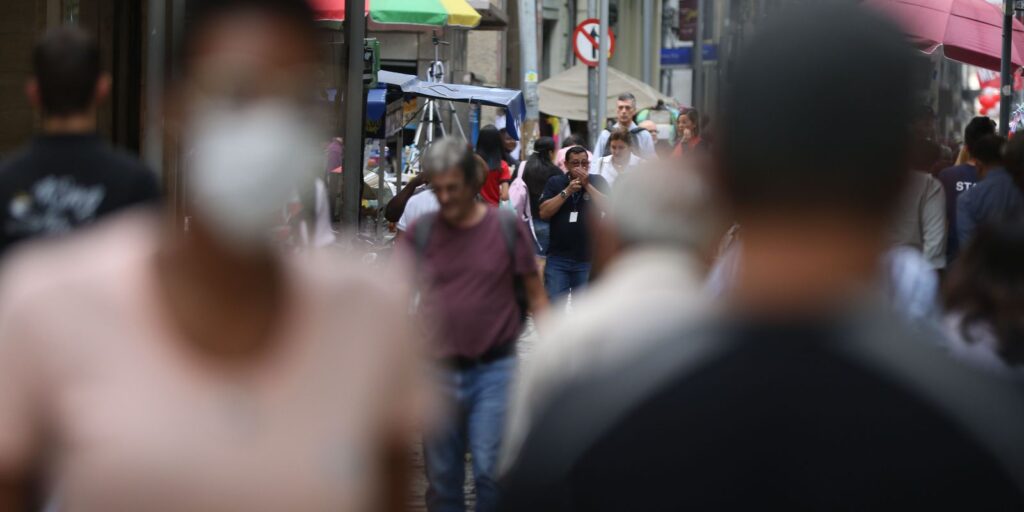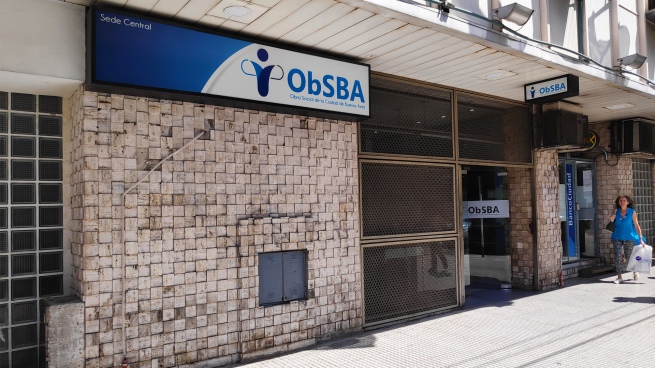August 25, 2022, 5:35 PM
August 25, 2022, 5:35 PM
Workers at a jeans factory on Venezuela’s border with Colombia play cards as they wait to resume production, halted for more than two hours by one of the power outages that have been shutting down industrial activity in the area for years.
With a view to an imminent reopening of the border, still without a date, blackouts, poor roads and lack of financing are problems that concern small manufacturers in the border town of Ureña (Táchira state, west), who have survived harsh penalties at the closure of binational crossings.
The arrival of Gustavo Petro to the Colombian presidency created conditions to resume Bogotá-Caracas relations, broken in 2019.
Petro and Nicolás Maduro have already appointed ambassadors and both have expressed their willingness to “restore normality” on the 2,200 km border, punished by armed groups and smuggling.
“We have to be prepared,” Fernando Grajales, the owner of this pants factory, tells AFP. asks for solutions for the failures of public services and the deterioration of infrastructure in years of paralysis. “We need roads, we need electricity, we need water, we need large investments,” adds the 49-year-old businessman, a member of the local Chamber of Industry and Commerce.
This border was one of the busiest in Latin America, but the transit of cargo vehicles was restricted in 2015following an attack on a Venezuelan military patrol, and was completely blocked amid violent riots in 2019when the government of Iván Duque recognized the opposition leader Juan Guaidó as “president in charge” of Venezuela for questioning the re-election of Maduro.
“We have been there, as they say, adrift, working against the current,” laments Juan Pimiento, 52, another clothing manufacturer in Ureña.
The commercial exchange between Venezuela and Colombia, which was close to 7,200 million dollars in 2008, barely reached 400 million in 2021, according to the Colombian-Venezuelan Integration Chamber (CAVECOL), which manages projections of 800 million to 1,200 million dollars this year, taking into account the impact that the reopening of the border could have.
“We already endured the bad”
Emigration, with the departure of six million Venezuelans in recent years according to the UN (1.8 million of whom chose Colombia as a destination), is another headache.
“Several workers who had been with me for years went to Colombia (…), I almost start sewing myself,” says Carlos Carrillo, 51, a partner at Pimiento.
Workers doing manual labor in the dark, among switched off machinery, and factories with lowered bars were a common image in the industrial zone of Ureña after the blackout on Wednesday.
“It’s daily bread,” Carrillo complains.
National and regional authorities had a meeting with businessmen, industrialists and merchants hours before.
“We have to adapt the infrastructure and services,” acknowledged the governor of Táchira, the official Freddy Bernal, who believes that the opening of the border would bring an increase of 4,000 million dollars in trade in the short term. He asked, however, for patience: “We are not going to do it from one day to the next.”
The border bridges in Táchira remain closed to the passage of vehicles, limited to the pedestrian crossing. On the Tienditas bridge, in Ureña, there are gigantic containers that block the road, placed by the military when Guaidó led the failed attempt in 2019 to pass shipments of food and medicine sent by the United States, which the Maduro government described as the pretext for “an invasion”.
Despite the difficulties, the producers have hope in the reactivation of the border. “We’ve put up with the bad (…), let’s see what comes to us in the future,” Pimiento hopes.

















